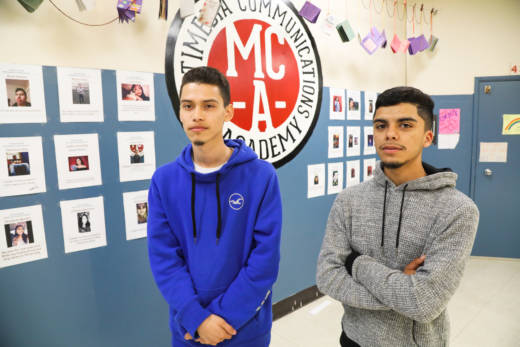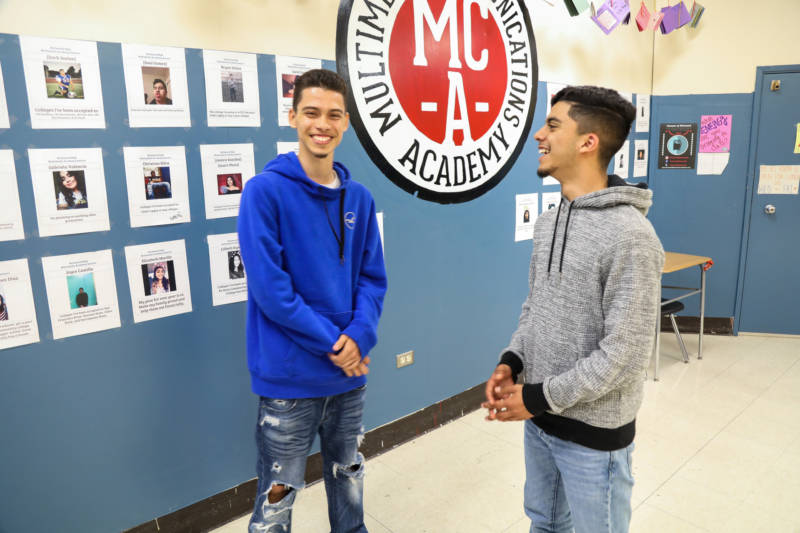Editor's note: The following story was produced for Youth Takeover week at KQED.
"Grow up!"
"Be a man."
"Men don't cry."
"Don't be a sissy!"

Editor's note: The following story was produced for Youth Takeover week at KQED.
"Grow up!"
"Be a man."
"Men don't cry."
"Don't be a sissy!"
"Man up."
These words were all too familiar to Richmond High School senior Frank Mendieta -- and he was tired of hearing them. So Mendieta, 17, and his classmate, Brian Higareda, 18, interviewed men of all ages and asked them what they really thought it meant to be a man. They shared what they heard as part of KQED's Youth Takeover Week.
"As a man growing up in Richmond, we are expected to be part of the crowd," Mendieta says. He describes this crowd as one of "violence, drugs and crime," adding, "at least, that's what society expects of us."
In Richmond, young men have to wear what he calls a "mask that hides feelings, exposes masculinity and leads us to violence."
"We can't show who we truly are because many of us are afraid to be judged or be called a girl," Mendieta says.
One young man they interviewed, Bernardo, says he learned the expectations of manhood from his father.
"He would tell me to not show any emotions or feelings, because that's a man would not do," Mendieta says. But they also found in their interviews that there are many young men in Richmond who are redefining what it means to be a man.

Parents have a significant influence on how children behave, which explains why Bernardo felt like he had to act like his dad when it came to hiding his feelings. On the other hand, seeing other men express themselves and show emotions toward him gave him another model for manhood.
In addition to showing emotions, they found that many boys in Richmond are breaking the stereotype of manhood because they are playing more emotional-support and providing-type roles in their family.
"In Richmond, we are considered to be the kind of man who holds power, shows no emotions and acts tough," Mendieta says.
In conducting the interviews, however, Mendieta found that men in Richmond "are not the ones that society portrays... we have feelings, we can express our emotions and we actually care about the people who we surround ourselves with."
Their takeaway from these interviews?
"We have to put an end to gender norms, where the man is a tough, heartless person and the woman is a sensitive, caring person," Mendieta says. "It's time to spread love and not hate, and not judge others by their physical appearance or personality."
To learn more about how we use your information, please read our privacy policy.